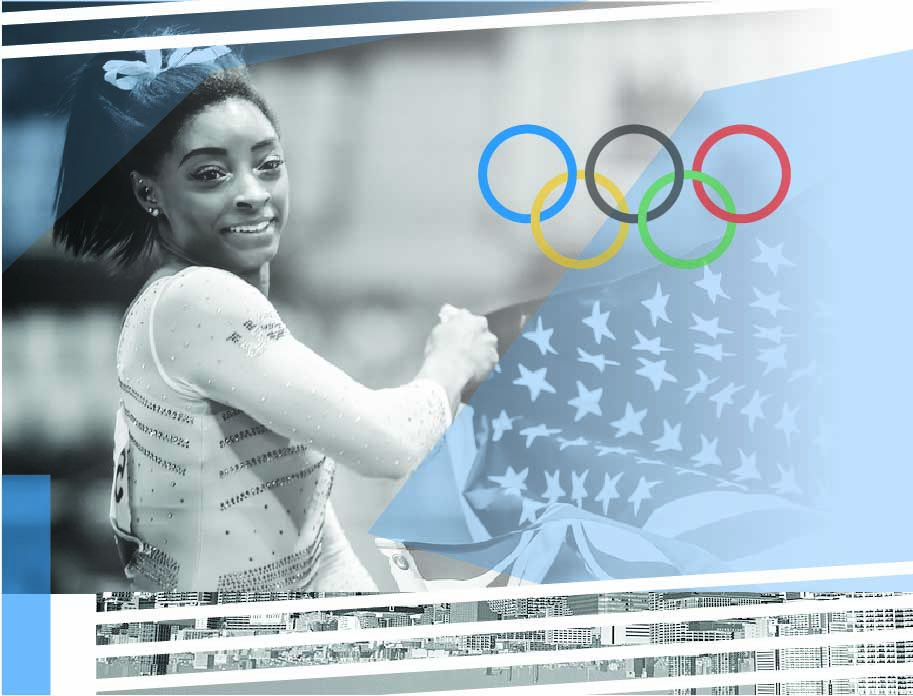
Prof Wycliffe W. Simiyu Njororai
Professor of Kinesiology, University of Texas at Tyler, Texas, USA. His research interest focuses on physical education and sport and has published numerous peer review journal articles and book chapters and has given several national and international conference presentations.
Twitter: @Njororai

Section 1: Tokyo & Mega-Events
- Public relations as the key in the 2020 Tokyo Olympic and Paralympic Games
- Tokyo 2020, East Asian geopolitics and Olympic diplomacy
- Anti-sex beds? Fake news! : why this video went massively viral?
- Power sharing: Olympic sponsorship and the athlete’s personal brand
- The Tokyo 2020 Organizing Committee’s veil of effective public relations to help save itself and the start of the Games
- Host city and mega-events: Olympic legacy in Japan
- The rise of critical consciousness in Japan: An intangible and unintended legacy of the Tokyo 2020 Olympic Games
- The soft power of the Olympics in the age of Covid 19
- Tokyo 2020 Olympic Games, nationalism, identity and soft power
- The typhoon games
- Environmental leadership showcased in the Olympic Games
- Simone Biles and prioritizing athlete well-being
- How the female athletes of the Tokyo Olympics are reframing the way we think about motherhood
- Deliver a medal or apologize: A daunting task imposed on Japanese Olympians
- What happened to Rule 40 at Tokyo 2020?
- Cultural programming at Tokyo 2020: the impossible Olympic festival city?
- A green Olympic legacy for future generations?
- Lessons from Tokyo: the impact of the Paralympics in Japan
- Let’s play! Inspiring an inclusive mindset with a hands-on Paralympic experience for children and teenagers in Japan.
- The Olympic & Paralympic sponsorship without category exclusivity: Background of sponsorship exclusivity in Olympic and Paralympic Games (OPG)
- Counting cases, counting medals: Containing the Olympic contagion during the Tokyo Games
- The Olympic Games and ambush marketing via social media
The 32nd Olympiad has been unique in many ways due, in large part, to the lasting effects of Covid-19 that forced the International Olympic Committee (IOC) and hosts, Japan, to move the Games from 2020 to 2021. Apart from the 2020 Tokyo Olympics being held a year later, the Games were also held without spectators as well as family members of the athletes at competition venues. These Games were also held in an atmosphere of renewed activism pertaining to race relations, athlete-labour migration, performance enhancing drugs and testosterone levels in female athletes, gender identity issues as well as mental health of the participants. Despite the initial challenges, the Games have shown that they have a strong international appeal, and their successful completion is an affirmation of their social, economic, and political significance in society.
For many countries around the world, winning a medal at the Olympic Games is an explicit endorsement of their national ethos. It is an affirmation that what they are doing as a nation is working. Citizens also, put their cultural, religious, and political differences aside, and rally together to cheer their fellow citizens. On many occasions, athletes experience a strong sense of emotional pride as the national anthem of their home country is played as the medal is put around their neck. They gladly wrap themselves in their national flag as they celebrate their hard-won victory. Tears flow freely as the world stands still to acknowledge their accomplishment as the very cream of their craft. Their fellow citizenry cheer and hug unreservedly as the athletes lift the brand of their Nation atop the world. It is a time of national and patriotic pride. The striving, application and triumph of athletes has a powerful connection with the fans as the latter feel inspired by the former.
The positive effects of the Olympic Games to individual athletes, teams, nations, and hosts are indescribable. The Games provide a platform where positive nationalism is put on display and differences are put aside to witness and cheer on some of the best talented individuals from the whole world. It is a time when the spirit of competition and sportsmanship become paramount, and there were days in the past where there was no overt hate.
However, the 2020 Tokyo Olympics were held at a time when the social media brings to the fore unfiltered feelings both positive and negative. In the USA for example, defeats at the Games were cheered and people representing the country and the national flag were incidentally not celebrated. Ridiculing athletic accomplishments may set in a risk of individuals starting to prioritize achievement for the self and family rather than the nation. After all, it is the family that supports and witnesses the sacrifices that athletes make to reach the top of their game.
At the 32nd Olympiad, some athletes who went to the Games at the very top of their game and expected to win gold medals, fell short, while some underdogs showed up and stole the show. For example, Simona Biles, one of the greatest gymnasts for the USA, arrived at the Games and swiftly qualified for a shot at the gold medal in six different events. Unfortunately, things fell apart and she made a bold decision to sacrifice her ambitions for the good of the team citing mental health issues. The chasm between the expected and the reality of her gymnastic accomplishments drew sharp affirmations and criticism. This incident is a microcosm of the struggles of athletes as they strive to actualize the supernatural level at which the public elevates and views them. When athletes are at their very best and winning effortlessly, they are gods; when they fail, even marginally, they are failures. The media and the critics lose their minds when athletes with a proven winning record fail to accomplish the goal of earning a gold medal. In some cases, winning a bronze medal is viewed as a failure, not the accomplishment that it should have been.
What the casual fan does not realize is that athletes are human beings. These are people who dedicate their time and work hard to even compete at that level, let alone medal in an event. It is sad when the world thinks about accomplishment only in terms of wins and gold medals. It is unfortunate that this cultural striving for perfection at the Olympics means that a gold medal is practically the ONLY acceptable accomplishment in the Olympics (for some).
Yet, behind that medal is a human being that suffers failure, self-doubt, criticism and heartbreaks, social disengagement during training as they focus on perfecting their athletic talent. The burden rests with the media to share the stories of the Olympians so that people may empathize with their struggles and triumphs in life.

